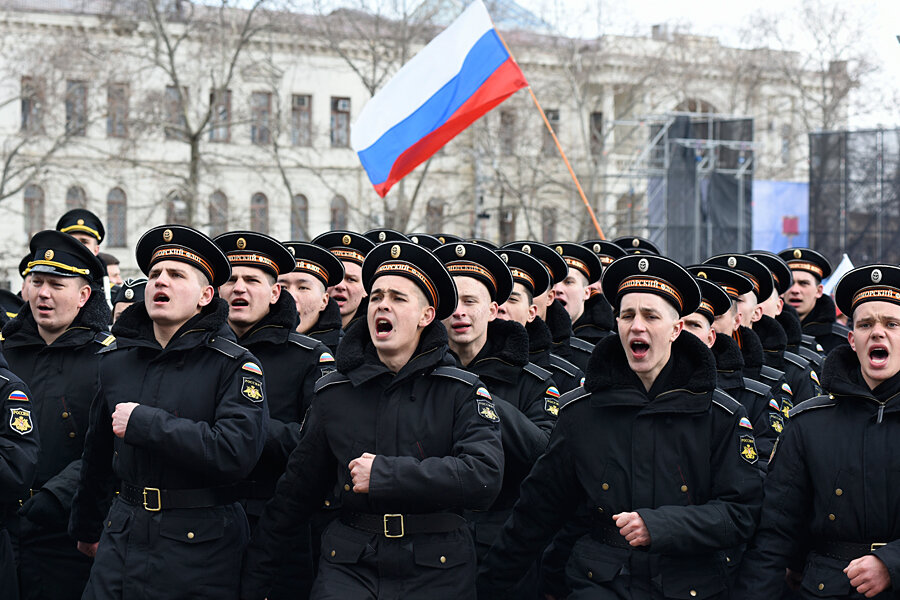What's behind Russia's massive muscle-flexing?
| Moscow
Strategic bombers to Crimea, nuclear-capable Iskander ballistic missiles to Kaliningrad, and unprecedented war games in Russia's far north: Virtually every unit, from paratroopers to antisubmarine forces, appears to be out in the field flexing its muscles in what the Ministry of Defense calls "snap drills" to test readiness for a range of "new threats."
The Kremlin insists that this mobilization, the biggest since the cold war, is simply an internal check to ensure that Russia's longstanding rearmament program is producing results.
Even amid economic crisis and drastic cuts in government spending, Russia's military budget is set to grow by a whopping 30 percent this year. But some European leaders say Russia's display of force may be aimed at intimidating them as they mull over whether to extend sanctions on Russia for its interference in Ukraine's civil war.
“I’m certain that Russia is making these kinds of gestures … in order to influence a little the decision of the European Council," Polish Prime Minister Ewa Kopacz told journalists Tuesday.
Experts say political messaging is definitely part of the performance. This week, Russia is celebrating the anniversary of Crimea's annexation, and the defiant line out of Moscow is that nothing short of a third world war will ever pry the territory away from the motherland again.
Russia knocks NATO drills
Russia's foreign ministry expressed "alarm" this week at the growing number of NATO exercises taking place near its borders, as Western armies stage their own show of resolve against perceived Russian aggressiveness.
"Such NATO actions lead to destabilization of the situation and increasing tensions in northeastern Europe," Tass quoted deputy foreign minister Alexei Meshkov as saying.
"Our authorities may say that our maneuvers have nothing to do with NATO actions, but how can our military ignore all these war games taking place near our borders?" says Viktor Litovkin, military editor of Tass. "This is a demonstration of force on both sides."
The NATO activity, mostly in new-member states that are neighbors of Russia, also looks unprecedented, at least since the cold war.
"NATO is 10 times more active than in the past. They keep putting out paranoid statements about what they think Russia is up to," to justify their own growing deployments in eastern Europe, says Viktor Baranets, a former Defense Ministry spokesman and military columnist.
As for the Russian military's new visibility, everyone should get used to it, he adds. "The Russian Army has to be battle-worthy, and ready for any turn of events at any moment. So, like a good athlete, it has to train every day."






